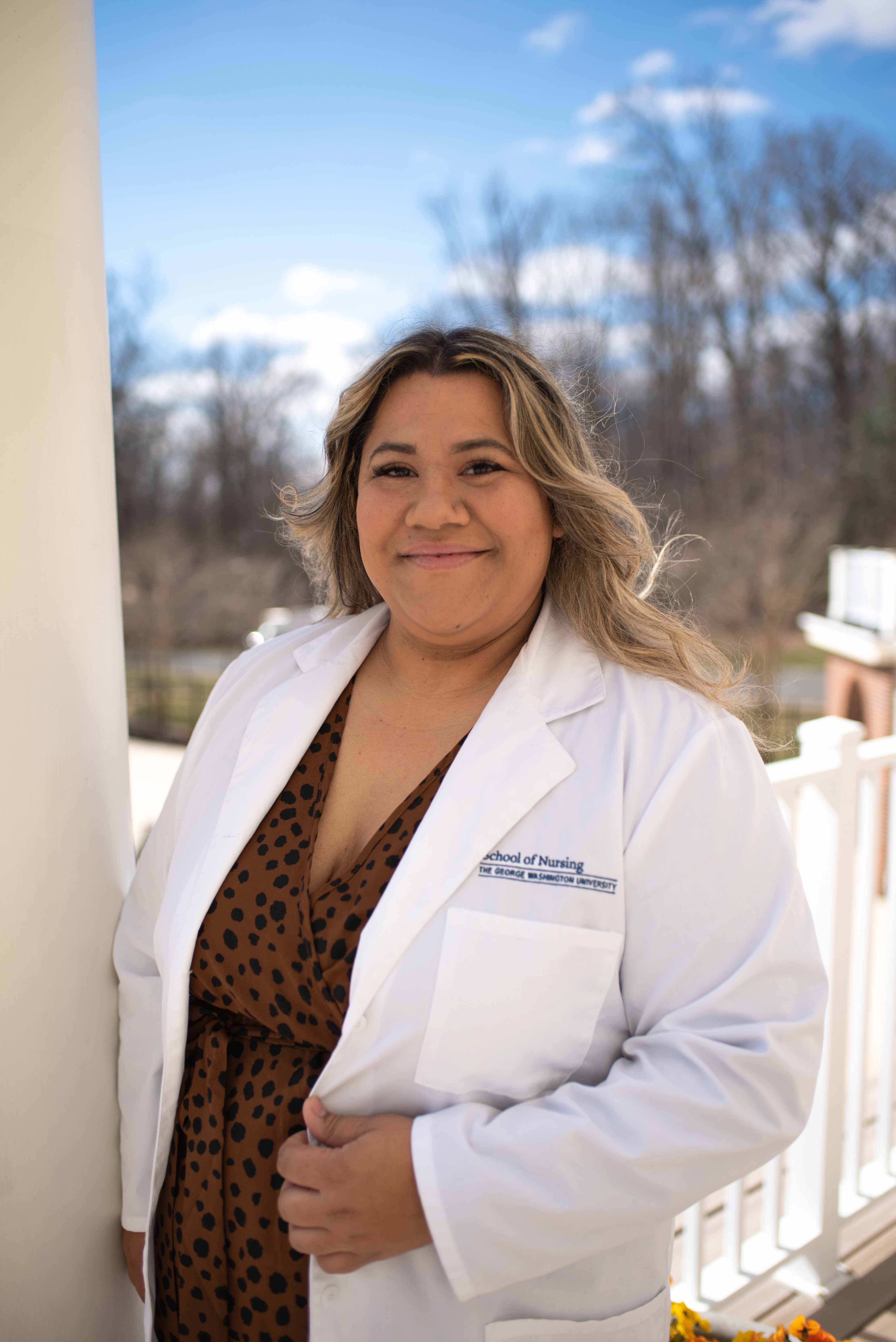Anais Marin’s path to nursing began in a solid place—the military. As a Navy Hospital Corpsman, she served nearly a decade on active duty, working in diverse healthcare roles from patient administration to perioperative services and anesthesia. She discovered a passion for patient care during her service, a passion that ultimately led her to the GW School of Nursing's Veterans BSN program. Marin’s story reflects not only a deep commitment to service but also the unique resilience and adaptability that veterans bring to the field of nursing.
Finding Purpose in Healthcare Through Military Service
For Marin, choosing nursing as her post-military career was a natural progression. “Growing up, I had life experiences that showed me how much I loved helping others and serving my community,” she shares. This inclination became clear during her time in the Navy, where she worked as a Corpsman. Her role involved not just medical tasks but also offering emotional support to her fellow service members. “The healthcare realm appealed to me, and working as a Corpsman made me feel I was exactly where I needed to be.”
After nearly ten years on active duty, Marin faced a turning point. While she’d been taking courses to progress toward a nursing degree, she felt her goals weren’t moving forward fast enough. “I knew I needed to make a change,” she explains. She began looking into accelerated nursing programs, and GW’s veteran-friendly environment immediately stood out. “I didn’t want my experience to go to waste,” she recalls, “and GW was clearly a place where they respected and supported veterans in achieving their goals.”
Transitioning Skills from Military Service to Nursing
Marin’s background as a Corpsman brought a unique perspective to her nursing education. “I’d had the opportunity to work in so many areas within healthcare—from women’s health to perioperative services and even anesthesia,” she says. This variety gave her a broad understanding of patient care and taught her to think critically in high-pressure situations. “Serving in those roles made me realize this was my calling,” Marin explains. “It influenced me to continue pursuing a degree that would keep me in this space, building on my skills and deepening my approach to patient care.”
The experience has helped Marin in her clinical rotations, allowing her to approach patient scenarios with a calm, measured demeanor—qualities she honed in the military. She believes her military training in fast-paced, often stressful healthcare environments has prepared her well for the demands of nursing.
Overcoming Challenges in an Accelerated Program
Transitioning from military service to a rigorous academic setting wasn’t without challenges. The Veterans BSN program at GW is known for its demanding pace, and time management quickly became Marin’s biggest hurdle. “The first semester was intense,” she recalls, “with classes practically every day and an hour-long commute back home. Then I’d have assignments and studying to complete.”
Marin tackled this challenge with discipline, setting aside time each evening to decompress, have a snack, and refocus before diving into study mode. Her military background helped her adopt this routine, but she also leaned on her family for support. “I’m a mother and have a partner, so trying to be present with them while also succeeding in school was a constant balancing act,” she admits. She had open conversations with her family, helping them understand that this period was temporary and part of achieving a shared goal. “We made the most of our time together, and I tried to be present whenever I was home. It was tough, but it was what I needed to do to succeed.”
Support from GW School of Nursing’s Veteran-Friendly Community
One of the things Marin valued most about the GW School of Nursing was the support she received as a veteran student. The faculty and staff went above and beyond to ensure she felt supported both academically and personally. “Dr. Catherine Cox was my faculty mentor, and she was always incredibly supportive,” Marin shares. “She truly wanted to ensure I had all the tools I needed to succeed.” Marin also highlights the support she received from Program Associate Brandon Burton, a veteran liaison on campus who frequently checked in with veteran students. “He was always there, asking what he could do to make things better for us.”
This network of support not only helped Marin succeed academically but also reinforced her belief that she’d chosen the right path in nursing. “I’ve never been to a school where the faculty truly care about you, your classes, and helping you get where you need to be,” she says. “It’s a great feeling, and I think any veteran student can benefit from it.”
Advice to Fellow Veterans: Stick to Your Goals and Find a Supportive Program
Reflecting on her journey, Marin has advice for veterans considering a similar path: “Stick to your goals and look into programs that support you as a veteran. GW was the perfect place for me.” She highly recommends the Veterans BSN program to anyone looking to transition from military service to nursing. “I tell everyone about GW,” she says. “Being able to attend and graduate from such an exceptional program has helped me in more ways than one.”
For Marin, her journey from the military to the GW School of Nursing was a meaningful evolution of her commitment to service. Now equipped with advanced nursing skills and the resilience of her military background, she’s ready to make a difference in her community, embodying the dedication and compassion that make veterans such a valuable addition to the nursing profession.


